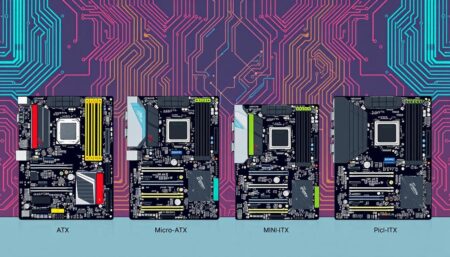If you are a computer user, you might have heard of the term BIOS (Basic Input/Output System) update. It is a process of updating the software that controls your computer’s hardware. The BIOS is stored on a small chip on the motherboard, and it plays a crucial role in the functioning of your computer. However, one of the most common concerns among computer users is whether a BIOS update can damage their motherboard. In this article, we will address this concern and explore the risks and benefits of updating your BIOS.
What is a BIOS Update?
Before we dive into the risks and benefits of a BIOS update, let’s first understand what it is. A BIOS update is a process of upgrading the software that controls the hardware components of your computer. The BIOS is responsible for initiating and controlling the hardware during the booting process. It also enables communication between the operating system and the hardware components.
Why Do You Need a BIOS Update?
A BIOS update is essential for several reasons. Firstly, it can improve the performance and stability of your computer. Manufacturers often release BIOS updates to fix bugs, improve compatibility with hardware and software, and enhance the security of the system. Secondly, a BIOS update can add support for new hardware components, such as processors, graphics cards, and memory modules. Finally, a BIOS update can add new features to your system.
What Are the Risks of a BIOS Update?
Now that we have covered the benefits let’s dive into the risks. One of the most significant risks of updating your BIOS is that it can damage your motherboard. A BIOS update is a delicate process, and if something goes wrong during the update, it can render your computer useless. If the update process is interrupted or corrupted, it can result in a system crash or a bricked motherboard.
Another risk of a BIOS update is that it can cause compatibility issues with your hardware components. If the updated BIOS is not compatible with your current hardware, it can cause stability issues or prevent your computer from booting up. Additionally, a BIOS update can also reset your system settings, which can cause issues with your installed software.
How to Mitigate the Risks of a BIOS Update?
While the risks of a BIOS update cannot be eliminated entirely, there are ways to mitigate them. Firstly, ensure that you follow the manufacturer’s instructions carefully. Before updating the BIOS, read the release notes, and ensure that the update is compatible with your hardware. Additionally, make sure that your computer is plugged into a reliable power source and that you do not interrupt the update process. Finally, backup your important data before updating the BIOS.
FAQs
- Can a BIOS update improve gaming performance?
Yes, a BIOS update can improve gaming performance by optimizing your computer’s hardware and enabling it to run at its best.
- Can a failed BIOS update be fixed?
A failed BIOS update can be fixed by restoring the previous BIOS version or using the manufacturer’s recovery tools.
- How long does a BIOS update take?
A BIOS update typically takes a few minutes to complete, depending on the speed of your computer and the size of the update.
- Can a BIOS update cause overheating?
No, a BIOS update cannot cause overheating. Overheating is typically caused by faulty hardware or inadequate cooling systems.
- Can a BIOS update be reverted?
Yes, a BIOS update can be reverted by using the manufacturer’s recovery tools or by restoring the previous BIOS version.
Conclusion
In conclusion, a BIOS update is an essential process that can improve the performance and stability of your computer. However, it also carries risks, such as damaging your motherboard or causing compatibility issues. To mitigate these risks, ensure that you follow the manufacturer’s instructions carefully, backup your important data, and do not interrupt the update
